IRT 2021 Plenary Speakers
Contact
Kofi Annan Institute for Global Citizenship (IGC)Markim Hall, Third Floor 651-696-6655
651-696-6750 (fax)
igc@macalester.edu
facebook twitter
Plenary Panel:
Critical Research and Activism: Student Protests and Movements Globally
Sofia Donoso 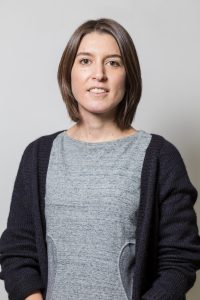
Sofia Donoso holds an MPhil and a PhD in Development Studies from the University of Oxford. She is an assistant professor of sociology at the Universidad de Chile and a research fellow at the Centre for Social Conflict and Cohesion Studies (COES). Dr Donoso’s research focuses on social movements and the institutionalization of protests in Chile. Specifically, she has analyzed how waves of student protests in Chile since the early 2000s have shaped both the contents and shape of politics. Tracing the student movement’s political impact, her work identifies how the discourse on inequality has changed, and how this is expressed in concrete policy reforms. Furthermore, examining how former student leaders decide to create political parties and run for elections, Dr Donoso’s research discusses how students in Chile have reshaped politics in multiple ways and the challenges that this new political force faces. She is the co-editor with Marisa von Bülow of Social Movements in Chile: Organization, Trajectories and Political Consequences (Palgrave Macmillan, 2017). Her work has been published in the Journal of Latin American Studies, Research in Social Movements, Conflicts and Change, Bulletin of Latin American Research, as well as in several chapters in edited volumes.
Michelle Jacob 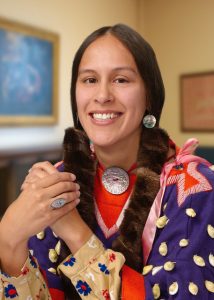
Michelle M. Jacob loves imagining a future in which kindness, fierceness, and creativity saturate our lives and institutions in delicious and inviting ways. Dr. Jacob does this in her popular The Auntie Way Writing Retreats and Anahuy Mentoring Leadership Academy professional development workshops, in which she draws from her Yakama Indigenous cultural teachings to encourage and support educators and students in developing clear visions that bring about radical and sustainable social justice change that help us become stronger individuals who contribute to our communities. Doing so is part of a long-standing tradition of protesting structures that oppress and suppress Indigenous ways of knowing and being. Dr. Jacob is an enrolled member of the Yakama Nation and is Professor of Indigenous Studies and Co-Director of the Sapsik’ʷałá Program in the Department of Education Studies at the University of Oregon where she also serves as Affiliated Faculty in the Department of Indigenous, Race, and Ethnic Studies and in the Environmental Studies Program. Michelle has published six books and has numerous articles published in social science, education, and health science research journals, as well as a strong grant writing track-record. Her research areas of interest include: Indigenous methodologies, spirituality, health, education, Native feminisms, and decolonization. Dr. Jacob founded Anahuy Mentoring, LLC to support her vision of sharing Indigenous methodologies with a broad audience of professionals through her books, professional development, coaching, and consultation. Anahúy is the Yakama Ichishkíin word for black bear, and English speakers would pronounce it as Anna-WHOEE. Anahuy is also the name of Michelle’s beloved Rez Dog, who adores playing ball with Michelle and her loving family at Yakama. You may contact Dr. Jacob through her website: https://anahuymentoring.com
Nathan Law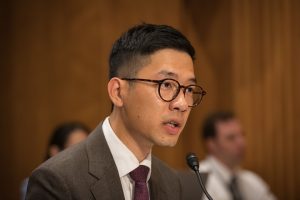
Nathan Law is a young Hong Kong activist, currently in exile and based in London. During the Umbrella Movement in 2014, Nathan was one of the five representatives who took part in the dialogue with the government, debating political reform. Upholding non-violent civic actions, Nathan, Joshua Wong and other student leaders founded Demosistō in 2016 and ran for the Legislative Council election. Nathan was elected with 50,818 votes in the Hong Kong Island constituency and became the youngest Legislative Councilor in history. Yet his seat was overturned in July 2017 following Beijing’s constitutional reinterpretation, despite international criticism. Nathan was later jailed for his participation in the Umbrella Movement. The persecution sparked global concern over Beijing’s crackdown on human rights and democratic movement in Hong Kong.In 2018, Nathan and his fellow student activists Joshua Wong and Alex Chow are nominated for the Nobel Peace Prize by US congressmen and British parliament members. Due to the risk imposed by the draconian National Security Law, Nathan left Hong Kong and continues to speak up for Hong Kong people on the international level. In 2020, he was listed as one of the 100 most influential people in the world by TIME.
Joshua Myers 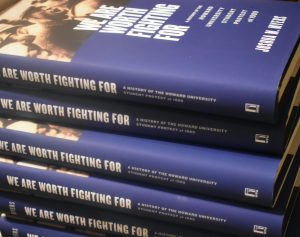
Joshua M. Myers is an Associate Professor of Africana Studies in the Department of Afro-American Studies at Howard University. He is the author of We Are Worth Fighting For: A History of the Howard University Student Protest of 1989 (NYU Press, 2019) and Cedric Robinson: The Time of the Black Radical Tradition (Polity, 2021), as well as the editor of A Gathering Together: Literary Journal. His research and activism focuses on Black radical movements for self-determination throughout the African diaspora. He works closely with the SNCC Legacy Project as well as other community organizations and contributes to the Africa World Now Project Collective.
Prishani Naidoo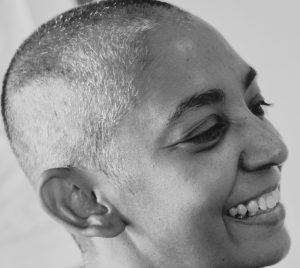
Prishani Naidoo is director of the Society, Work and Politics Institute (SWOP) at the University of the Witwatersrand in Johannesburg, South Africa. Her work focuses on questions of political subjectivity, the relationship between poverty management and wage labour in processes of subjectification, and possibilities for alternative political forms and life autonomous from the logics of capital. She has come to these primarily through her involvement in the South African student movement of the 1990s and social movements that emerged between 1999 and 2006 that saw students coming together with others in struggles against the introduction of neoliberal policies. In this period, she also worked as a researcher and writer in various civil society formations, participating in policy debates and processes about higher education transformation, access to basic services and poverty inter alia. Since 2008, she has taught in the sociology department at Wits, during which time she has also been part of ongoing struggles in the university together with students and workers. She is currently working on a book with the provisional title of ‘The Subject of Poverty. Protest, Policy and Politics in South Africa after 1994 ‘.
Plenary Panel:
The Rise of Student Protests Worldwide: A Sign of Hope and Transformation?
Maria Fernanda Gonzalez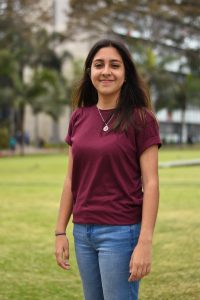
My name is Fernanda Gonzalez. I am a fifth year journalism student with a special interest in political and human rights issues. I am currently working as a news practitioner in the international section of a Peruvian television channel called Latina. I am also the former president of the Student Federation of the Pontificia Universidad Católica of Peru. Under my leadership (2020-2021), students joined various protests to speak out against the ongoing political crisis in Peru and to defend our rights as students. In the most recent protests of November 2020, one of the biggest manifestations of the last few years in Peru, we took to the streets to protest against a coup and faced police brutality and the disappearance of fellow students.
Meaza Gidey Gebremedhin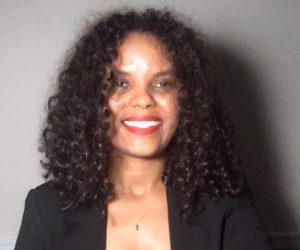
Meaza Gidey Gebremedhin’s activism began during her time as a graduate student. She is currently an International Relations specialist, human rights advocate and a community organizer at Omna Tigray, a nonpartisan global organization that advocates for Tigrayans and other marginalized people. She is also the Co-Founder of the first independent women’s rights movement in Tigray. Gebremedhin alongside her colleagues at the independent women’s rights movement in Tigray, was successful in providing humanitarian and economic assistance to vulnerable women who were highly impacted by the COVID19 pandemic. Gebremedhin completed her undergraduate degree in South Korea where she earned her BA in International Studies on a merit-based scholarship and graduated with honors. She recently received her MA in International Relations in the United States and graduated with distinction.
Oraz Myradov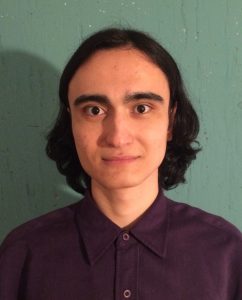
Orazmuhammet Myradov is originally from Turkmenistan, but has lived in Belarus for many years. He has long been active as an International Officer in the National Student Association Задзіночанне беларускіх студэнтаў (ZBS: Zadzinočańnie Biełaruskich Studentaŭ = BSA: Belarusian Student Association) and was one of the 6 democratically elected members of the organization’s board at the time of the repressions. In 2020, he began his second term in a leadership position with national student representation. He represents BSA among others within the European Students’ Union. There, as well as in Belarus, he campaigns for student and human rights in general.
On November11.2020, the Belarusian KGB (State Security Committee) broke into the flats of student activists of the national student representation and arrested them after a search. Two of the activists are members of the executive board, and were arrested along with five other activists of the organization. They were later charged under Article 342 of the Criminal Code of the Republic of Belarus “Organization and preparation of acts grossly violating public order, or active participation”. Faced with the significant risk of being arrested for student activism and work in the national student council, Oraz Myradov decided to leave Belarus on November 23,2020 and fled to Warsaw on a humanitarian visa for Belarusian citizens. Oraz continues to work for BSA in political exile as part of his board membership.
Bafanabakhe Sacolo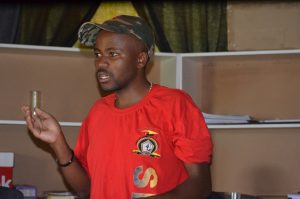
I am a 25 year-old Nursing student at the University of Swaziland. I am currently serving as the Secretary General of the Swaziland National Union of Students (SNUS), the only student organization in the country of Swaziland (now called Eswatini). SNUS has been credited with starting the movement towards democracy after the death of Thabani Nkomonye, a student at the university of Swaziland who was killed by the police. I have been at the forefront organizing students at the local and national level, which led to my arrest on May 21, 2021 having to spend three days in police custody and three days in the only maximum security prison of Swaziland. I was granted a E50 000 bail (US$3360.26). Unfortunately, I am in and out of court and no magistrate is willing to take my case because of the false charges.
Anjali Dalmia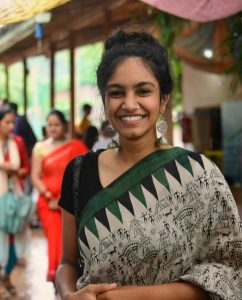
Anjali is an undergraduate student of Sociology & Anthropology and Environmental Studies at Ashoka University, India. In 2020-21, she headed the Environment Ministry of the Ashoka University Student Government (AUSG), during which she helped lead the national-level youth protest (digital and on-ground) against a destructive policy called the Draft Environmental Impact Assessment Notification 2020, proposed by the government in the midst of the pandemic. The Draft EIA2020 will give a freer hand to corporates and polluting industries, displace and impact millions of people (especially Adivasi, Dalit, Fisher, and Farmer Communities), severly suppress democratic rights and freedoms, and exacerbate environmental concerns in the subcontinent.
Anjali defines herself as an activist working for intersectional, anti-caste and democratic social & environmental justice. She is the co-creator of Yugma Network (yugmacollective.org), a pan-Indian youth initiative born from the Draft EIA2020 Campaign, which works towards achieving ground-level environmental justice by broadening the definition of environment to socio-cultural, economical and political issues, and by amplifying the perspectives & voices of Most Affected People and Areas, Dalit, Bahujan, Adivasi, Trans, Queer, Muslim, and other marginalised communities in conversations, campaigns, education, art, and law. She also works on The Project Amara (linktr.ee/theprojectamara), a Pune based initiative to ensure Sustainable and Equitable menstruation for ALL, especially menstruators in urban slums areas and those in schools. She is an active and on-ground member of National Alliance of People’s Movements, and also works as a part-time researcher for Land Conflict Watch (landconflictwatch.org). She loves marine ecology and insects and is particularly interested in working at the intersection of economics, policies, state, and social and environmental justice.
More work: https://linktr.ee/AnjaliDalmia